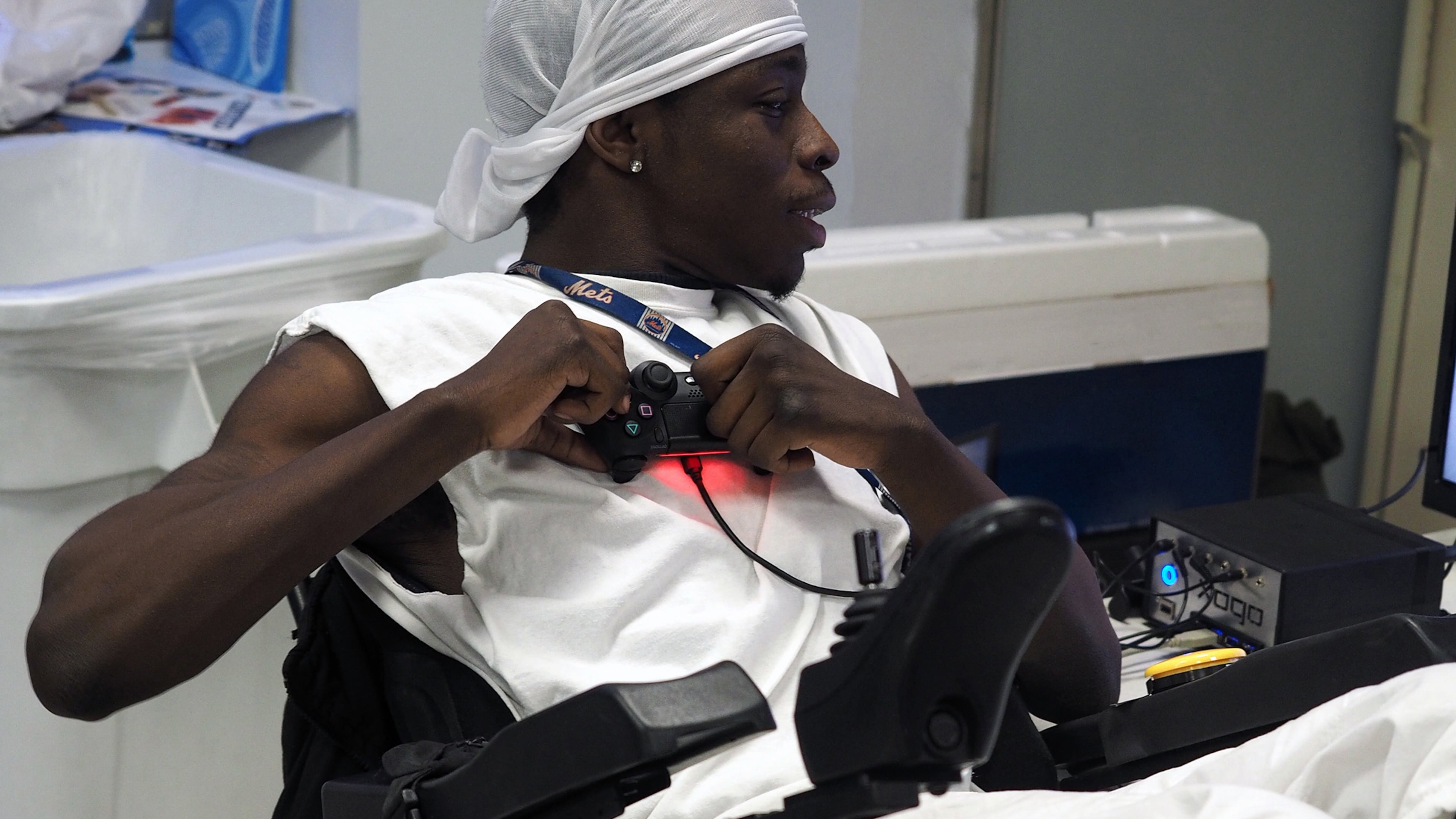Basen Labs adapter lets gamers with disabilities connect with tech

PITTSBURGH — Video games are a great leveler. After all, you don’t have to be a professional driver to play “Mario Kart.”
“Whether you’re tall, short, out of shape or a sports star, you can always play Xbox and be with your friends,” is the way Ray Abel puts it.
Abel is the CEO of a startup, Bansen Labs, that is working on a device that aims to bring even more people together, specifically, individuals with disabilities.
Bansen Labs is developing Xogo, a universal adapter that allows assistive technology — like the buttons and joysticks on wheelchairs, head arrays and sip-and-puffs — to connect to game consoles, smart home devices and cable boxes.
The adapter works with all standard USB, Bluetooth, Wi-Fi, and 3.5mm jacks.
“You can plug in your head switches, buddy buttons, foot pedals, and the other devices already in use or available,” according to the company, which has set up shop at small business incubator AlphaLab in East Liberty.
The startup has four employees: Abel; Dalton Banks, chief of products; Noam Eisen, chief technology officer; and Caitlyn Ferguson, administration.
The seed for a device like Xogo was planted when Dalton Banks, who co-founded the firm with Abel and Eisen, grew up close to someone with a disability. They played video games together when they wanted to hang out.
Later, a class project at the University of Pennsylvania showed the wider potential for a universal adapter.
“It started as a class project of ‘how do we help the people we know’ and realized there was a bigger potential than just this group,” Abel said.
Bansen Labs was founded in 2014, and the team spent the first year building the hardware and making sure it worked. Most of 2016 was doing testing at rehabilitation centers, children’s hospitals and nonprofits to get feedback. Then, the company started raising funding and moving toward production. Ferguson joined the team in December.
The company has raised about $550,000 so far. The plan is to begin manufacturing the device and get it on the market by the first quarter of 2018.
Among the priorities is to, one, make sure it works with the types of gadgets that people with disabilities already use. Another is to make sure the device is affordable to families and individuals already budgeting for other assistive devices and medical needs.
Especially when, for example, a wheelchair with a joystick can run several thousand dollars, Abel noted.
“The Xogo isn’t something where you have to buy proprietary things and special adapters,” he said. “It works with the things you already have. You can customize it to suit yourself.”
For people with disabilities, expenses can pile up.
“In the grand scheme of things, a lot of families need so many things for someone with a disability. There’s home modifications, equipment to be able to access the bathroom or bypass steps, having a wheelchair-adapted vehicle.” said Beth Ann Brednich, rehabilitation engineer at The Children’s Institute of Pittsburgh.
While some things may be covered by medical insurance, not everything is.
Entertainment devices may fall lower on the must-have list, but they still offer an important social and mental benefit, Brednich noted.
“Recreation is definitely important for everyone, but especially with the pediatric population,” Brednich said. “They want to interact with their family and friends in a home environment.”
Abel cited one example of someone that the team from Bansen Labs met, a man who broke his neck playing hockey. With a wheelchair joystick and other buttons, he was able to play an online hockey game with his friends and family again.
Now, the trend of smart home devices coming into more consumer homes en masse is a big benefit to those with disabilities.
“The universal devices found in a lot of homes — like Amazon Echo, Google Home or smart home products — now someone can access them from mobile devices,” Brednich said. “And someone with a disability can do that now for much lower costs.”
There’s a do-it-yourself aspect to the assistive device space. Since everyone’s needs are different, many people customize existing products and technology to make it work for them, Abel noted.
The team behind Xogo wants to create a platform where people can create their own software allow the device to connect in even more ways, Abel said.
“For instance, if you have a remote-controlled car that doesn’t work with Xogo, you can create hookups for it that will work. And you can upload it to our website so other people can access it too,” he said.
“We can hook up the big things, but there may be other random things we aren’t aware of, and we want to make sure that it’s open for people to do that.”
That idea is leading into a longer-term strategy to bring the device into schools to not only aid students with disabilities, but also encourage everyone to experiment with coding to connect Xogo to other things.
“Dalton and I had coding in high school and that’s where we got started,” Abel said. “If we can put Xogo into schools, and have a curriculum where people can code for it, it does a few things: People in the school can use Xogo to connect devices and kids who want to code can help others by coding.”


